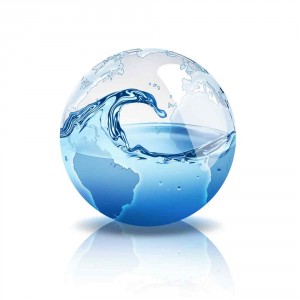Difference Between Hard Water and Soft Water
Hard and soft water are both commonly used in San Jose homes all across the country. In general, both are considered safe for human consumption and your San Jose household use. However, they are distinct in chemical composition and usefulness.
 How Does Water Become Hard?
How Does Water Become Hard?
When rainwater falls, it is considered soft. As it travels through the ground, however, it collects calcium, magnesium, and trace amounts of other minerals. By the time it makes it to the water supply, it is no longer soft.
What’s So Bad About Hard Water?
The minerals within the water are beneficial for the human body, so hard water poses no threat to health. However, it can do some damage to a household plumbing system.
When hard water is used, it leaves behind mineral deposits on surfaces and inside of pipes. Over time, these mineral deposits can build up and form thick scales.
These scales will interfere with water pressure levels and drainage. They also create thick, chalky residue in household appliances that makes everyday use more difficult.
While hard water remains safe for everyday use, people have other issues with its use. For example, minerals within the water create a bitter taste. Hard water can also make clothes appear dingy, and dries out skin and hair. Many will choose to avoid such issues by softening the water.
What Are the Benefits of Using Soft Water?
Soft water tends to be a bit salty, so it’s not very good for drinking. However, it is much better for other household uses. Without the additional metal ions, soft water is able to cleanse skin and hair without drying it out.
It is also able to move through plumbing without leaving behind mineral deposits.
Can Hard Water Be Softened?
Hard water can be restored to its previous condition by removing the minerals it collected from the ground. If water is only temporarily hard, then the minerals can be removed through boiling. Permanent hardness, on the other hand, needs to be treated with chemicals.
One of the more common ways to soften water is ion exchange. Through this process, calcium and magnesium ions are exchanged with sodium ions. Alternatively, other chemicals like citric acid and chelators can be used.
Do I Have Hard Water?
It is assumed that most households have hard water. However, an easy way to determine whether or not water is hard is to observe its reaction with soap. When soft water interacts with soap, it creates suds. Hard water, on the other hand, has a difficult time forming a lather.
Knowing the differences between hard & soft water in your San Jose, CA home is important. For more info, call Genmor Plumbing Inc. at 408-215-4612 today!


 How Does Water Become Hard?
How Does Water Become Hard?